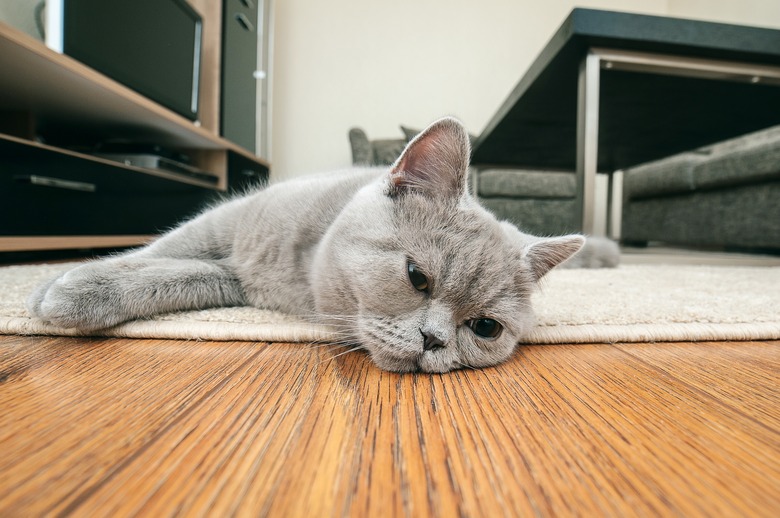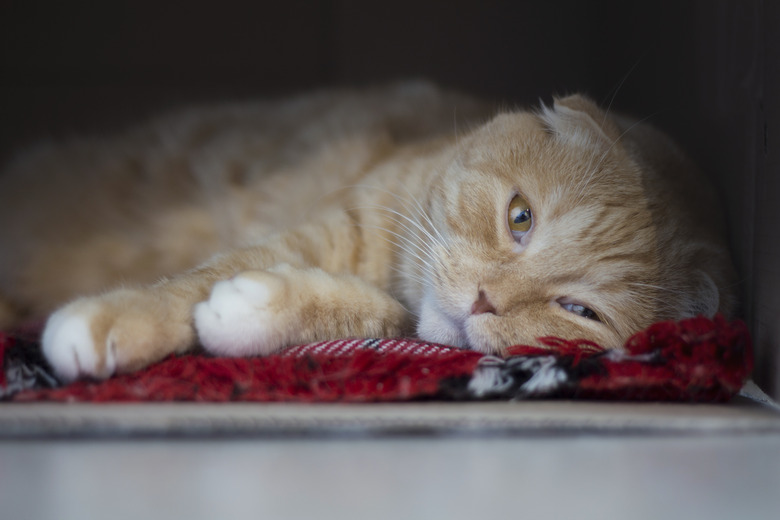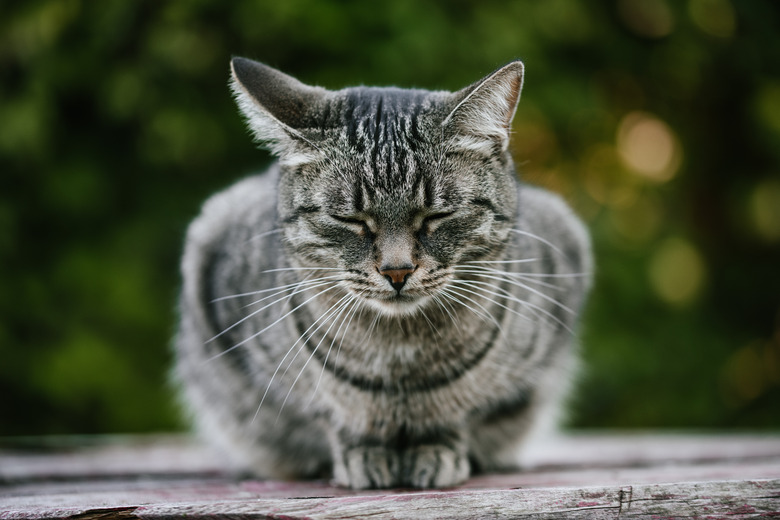Symptoms Of Cat Intestinal Blockage
If your cat is lethargic, refusing to eat, and seems constipated, she might be suffering an intestinal blockage. Cat intestinal blockage symptoms can vary according to whether the blockage is complete or partial, and the treatment for the blockage depends on the cause. Intestinal blockage is always a veterinary emergency, however, so get your cat to a vet immediately if you suspect a blockage.
Cat intestinal blockage symptoms
Cat intestinal blockage symptoms
Symptoms of obstruction in cats don't always appear early on, although some cats do experience a bloated stomach. If a blockage is not remedied immediately, a cat can experience appetite loss, constipation, lethargy and low body temperature. They might vomit brown material that smells like feces. Serious symptoms are more likely to appear in cats with upper intestinal obstruction; milder symptoms are common with obstruction in the lower part of the bowel.
Causes of intestinal blockage
Causes of intestinal blockage
Many things can cause intestinal blockage, but blockages often occur from the ingestion of foreign objects. Although dogs have more of a reputation for eating things they shouldn't, cats do it too — especially when they're younger. Cat toys, rubber bands, buttons, string, and paper are all fair game, as are other small objects that might pique your cat's interest.
Intestinal tumors can also cause obstructions, as can certain hernias and complications of abdominal surgery. Although less common, fecal impaction — when feces become too hard and cannot pass — can also lead to obstruction. Unless you know your cat ate something he shouldn't have, only a vet can determine the cause of your cat's blockage.
Partial vs. complete obstruction
Partial vs. complete obstruction
Partial obstructions can be harder to identify than complete obstructions because partial obstruction symptoms can come and go. A cat with a partial obstruction might have intermittent diarrhea or vomiting. He might lose weight even though he eats normally. Full obstructions affect cats more severely — they can cause severe vomiting, abdominal distension and pain. Full intestinal blockage makes it impossible for a cat to defecate.
Treating symptoms of construction in cats
Treating symptoms of construction in cats
If you suspect your cat is struggling with an intestinal blockage, get to the vet now. Time is very much of the essence with this malady. Obstructions can cut blood flow to parts of your cat's intestines, killing the tissue. Bad obstructions can kill, so it's crucial that your vet begin treatment as soon as possible.
The course of treatment for intestinal blockage in a cat will depend on what caused the blockage. If your cat's blockage is still sitting at the bottom of the stomach, your vet may induce vomiting in an attempt to bring the offending item. Before doing so, however, your vet will want to determine where any foreign objects are and whether or not the object has sharp edges.
Partial blockages caused by fecal impaction can sometimes resolve through the use of laxatives but, in most cases, intestinal blockage requires surgery. The surgery is sometimes exploratory — such as when a foreign body or cause for the blockage cannot be identified via X-rays. If a foreign object or tumor is discovered during exploratory surgery, the vet will perform surgery to remove it.
Preventing intestinal blockage
Preventing intestinal blockage
You can help prevent intestinal blockages in your cat by limiting what she has access to. Make sure to keep small objects like children's toys, sewing needles, Christmas decorations, and other potentially misguided snacks well out of the reach of your cat. Teach your children to do the same, always cleaning up and putting their toys away. Never give cats human food or animal bones both of which can wreak havoc on a cat's digestive tract. Choose cat toys that are too large for your cat to swallow, as well.


